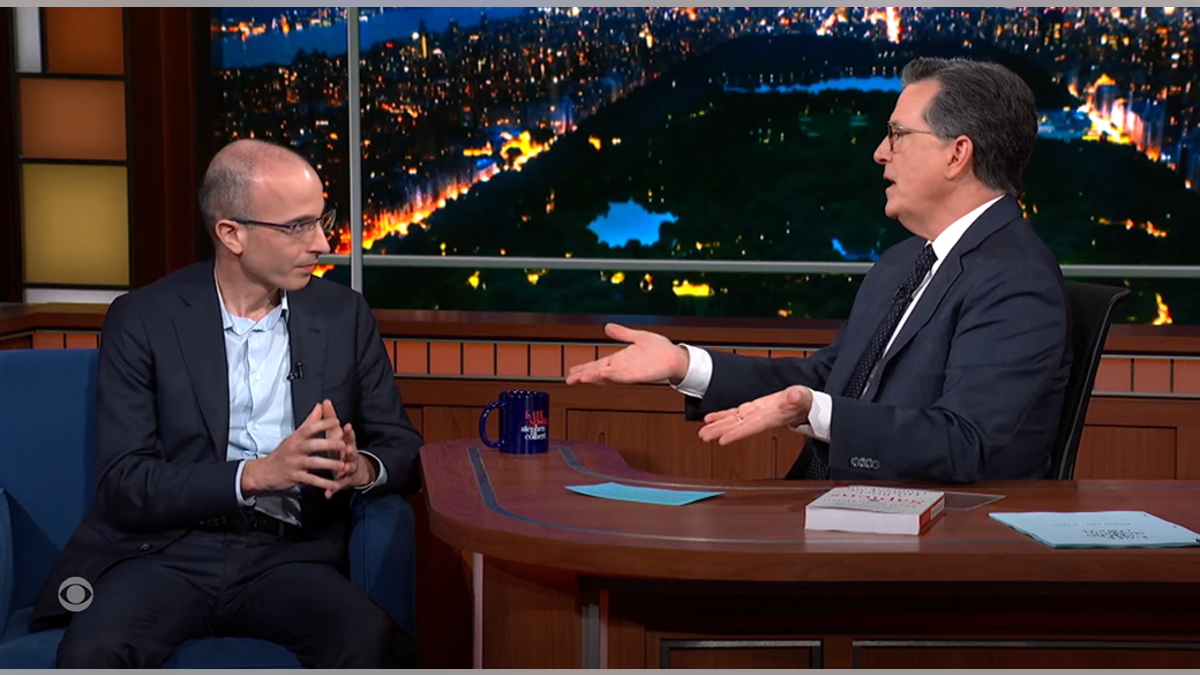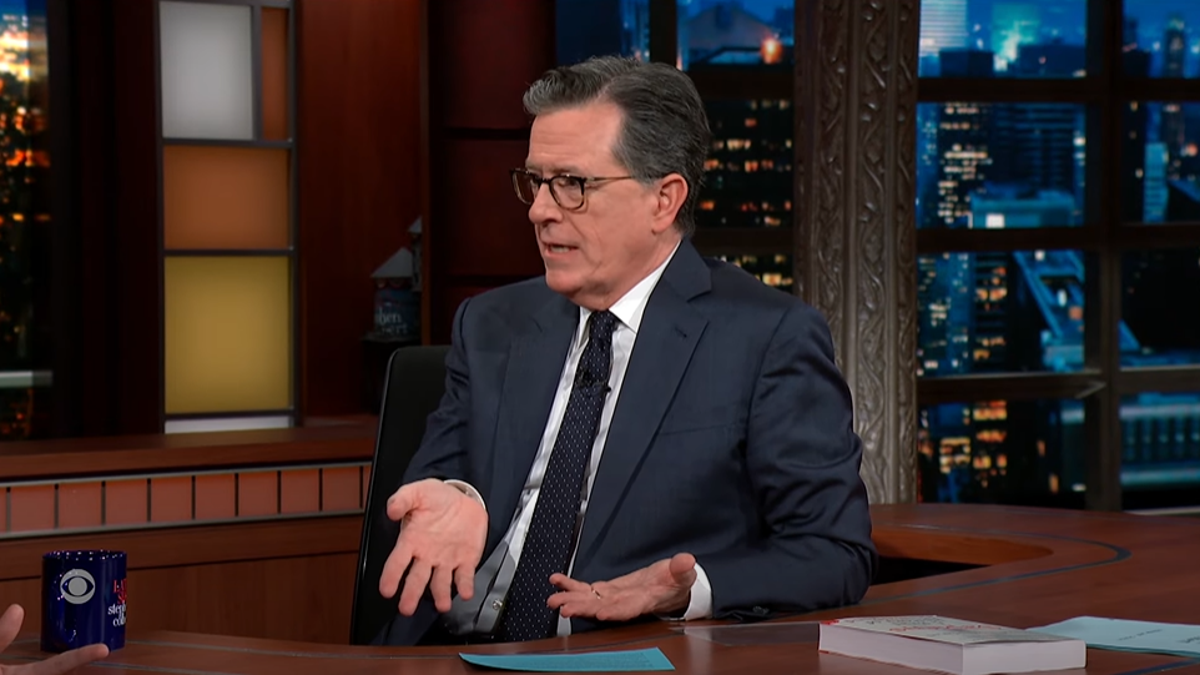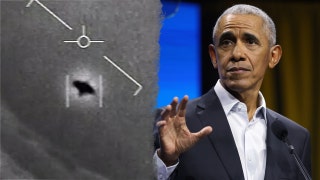Colbert says he is 'ready' for AI to 'tell us what to do' as a society
Late Show host Stephen Colbert spoke to a historian about the future Artificial Intelligence will have on human civilization, arguing he looks forward to when society is run by machines instead of people.
"Late Show" host Stephen Colbert spoke to a historian about the future Artificial Intelligence will have on human civilization, arguing he looks forward to when society is run by machines instead of people.
Colbert hosted author Yuval Noah Harari, noting that Harari has not only written extensively about humanity’s past, but about its potential future as well. The talk show host argued that it feels as if "this generation is undergoing a more rapid change of their technological environment than ever before," but hedged by saying that every generation probably feels this way and later asking, "Is it real that we are actually going through some sort of accelerating change?"
Harari argued this is genuinely the case for the current generation, because while people of the past could not predict invasions or disasters, "The basic stuff of human life, like the basic skills," were what remained consistent. He later explained that for previous generations, "you’re going to need to teach your kids how to plant rice and wheat, how to ride a horse, how to shoot a bow, because it will still be relevant in 20 years." The current year is different, he argued, because "Today nobody has any idea what to teach young people that will still be relevant in 20 years."
"Do we need to teach our young people anything now that AI is here?" Colbert asked.

Stephen Colbert debates about the nature of Artificial Intelligence with author Yuval Harari. (CBS)
AI’S BIGGEST IMPACT: WHICH SECTORS HAVE BENEFITED MOST AS JOB SECURITY REMAINS A VITAL CONCERN
"How to deal with it," Harari replied.
Colbert later noted that while "a lot of people are worried" about AI, "I’m not that worried about AI. It just doesn’t get my blood going to get worried about AI. I think of some positive aspects of it. I have seen how humans have handled history and - not great. So I’m ready for the big machines that make big decisions programmed by fellows with compassion and vision. I’m ready for the machines to tell us what to do. Are you?"
"Not really. It’s extremely dangerous," Harari replied, arguing it is dangerous "to give power to something we don’t understand."
"But they are just extensions of us," Colbert protested.
"No, they’re not," Harari replied.
"Yes, they are," Colbert said. "We made them. They are us."

Show host Stephen Colbert says he is not very concerned about how Artificial Intelligence will potentially impact society.
Harari argued that AI is radically different even from previous world-changing technologies like nuclear weapons or the printing press.
"We made them, but now they become [sic] potentially independent of us," he said. "The one thing to know about AI, the most important thing to know about AI, it’s the first technology in history they can make decisions by itself and can create new ideas by itself. People compare it to the printing press, to the atom bomb. No, it’s completely different."
Harari went on to cite social media algorithms as an example of AI making choices for what users are shown, but suggested that AI playing the ancient, chess-like Asian game of Go and coming up with entirely new strategies to win shows its creativity.
CLICK HERE TO GET THE FOX NEWS APP
"AI comes, and within a few years, plays like no human ever imagined that it was possible to play. This can happen in more and more fields, and we have never encountered anything like that before. Because every previous information technology, it simply copied and disseminated our ideas. The printing press just produced more books. Television just broadcast our thoughts," he said. "Here we have something that can create entirely new ideas which are not even bound by the limits of our imagination. Our imagination is the product of organic biochemistry. AI is not limited by that."










































